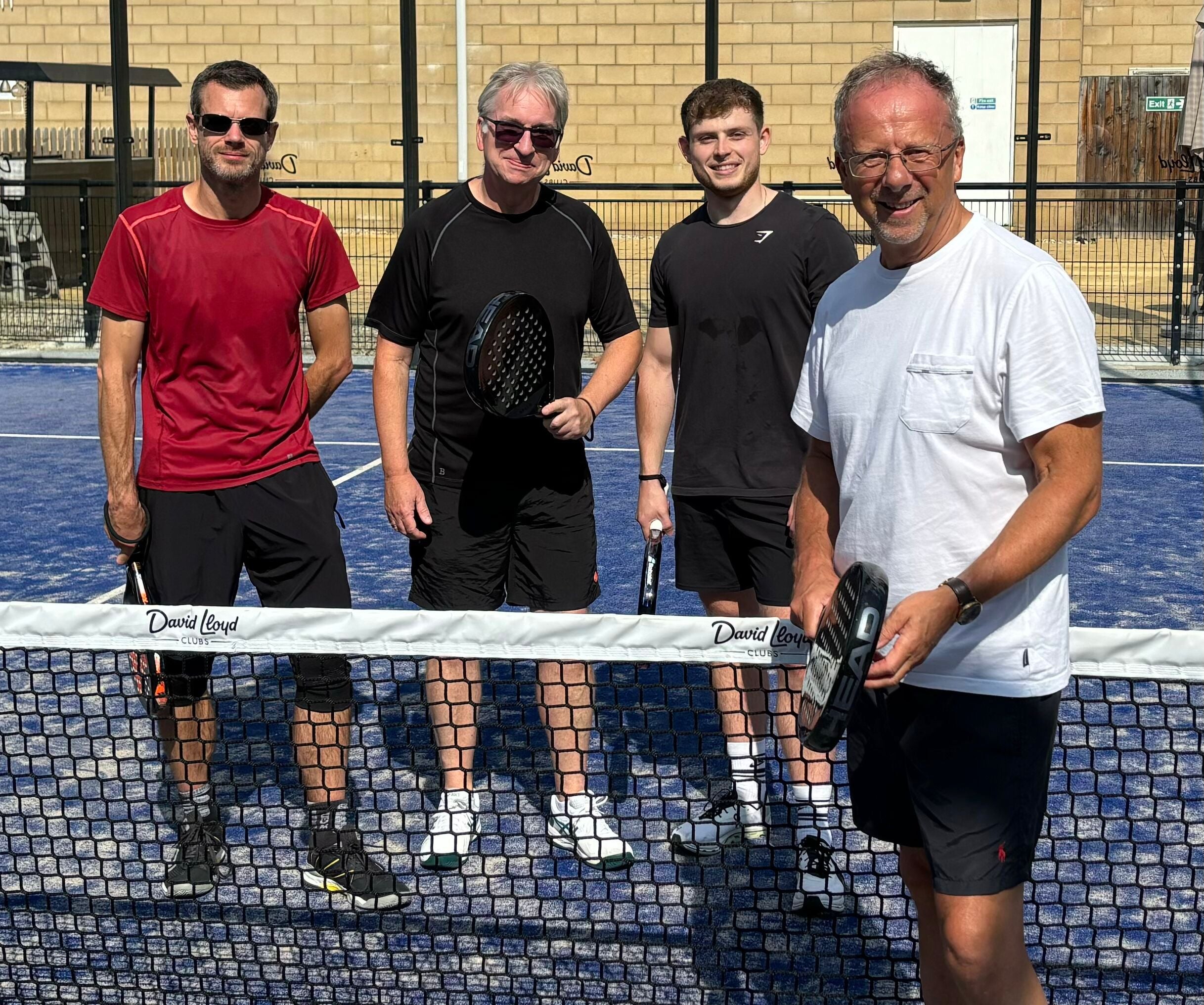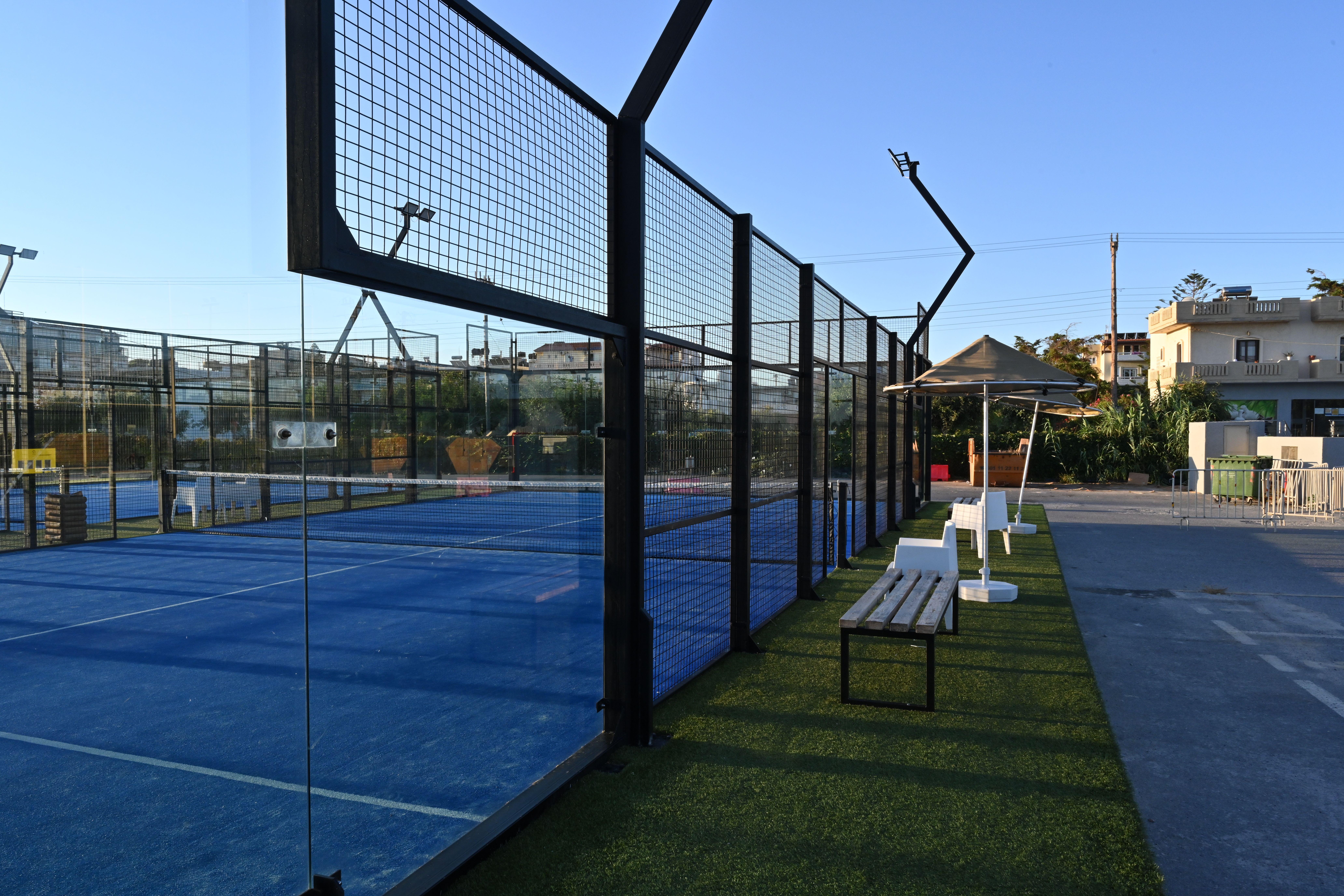Confessions of a padel addict: Why this new craze should come with a health warning
It’s the fastest growing sport

Your support helps us to tell the story
From reproductive rights to climate change to Big Tech, The Independent is on the ground when the story is developing. Whether it's investigating the financials of Elon Musk's pro-Trump PAC or producing our latest documentary, 'The A Word', which shines a light on the American women fighting for reproductive rights, we know how important it is to parse out the facts from the messaging.
At such a critical moment in US history, we need reporters on the ground. Your donation allows us to keep sending journalists to speak to both sides of the story.
The Independent is trusted by Americans across the entire political spectrum. And unlike many other quality news outlets, we choose not to lock Americans out of our reporting and analysis with paywalls. We believe quality journalism should be available to everyone, paid for by those who can afford it.
Your support makes all the difference.There’s a new sporting craze sweeping the country that should carry a national health warning: It is seriously addictive.
Three months after falling under the spell of padel – a fast-paced cross between tennis and squash – I confess to having severe withdrawal symptoms if I don’t get my regular fix of the game. I ignore aching joints, cancel important meetings and even play out matches in my sleep, according to my long-suffering wife, Carole.
But unlike other addictions, the benefits are wholly positive and in ways I could never have imagined. At 62, having been introduced to padel at a David Lloyd gym near my home in York shortly after taking early retirement, I feel fitter, more energised, happier and stronger than I have for years – even my metabolic age has dropped to a scarcely believable 52, according to the gym’s fancy body analysis kit that tracks health and wellbeing.
However, what sets padel apart from other sports is its social appeal and inclusivity. I’ve played hugely entertaining matches against youngsters barely into their teens through to ladies deep into their 70s.

And the friends I have made has led to unexpected trips to all sorts of social and sporting occasions. I’ve even arranged to play matches against club member Paul Martin and his family in Dubai later in the year.
Padel, typically played as doubles on an enclosed area a third of the size of a tennis court and with a squash-like glass back wall, is reported to be the fastest-growing racket sport in the world with more than 25 million active players in 110 countries. The likes of sporting superstars Cristiano Ronaldo, David Beckham, Lionel Messi and singer Shakira have all reportedly caught the bug.
New padel courts are springing up all over the UK with more than 250 new facilities built in 2022-23 – a rise of 116 per cent on the previous year – taking it to more than 460 courts overall.
Games are scored as they are in tennis, rackets are solid ‘padel’ bats with holes to create spin and serves are done underarm, thereby taking out the technically difficult tennis serve.
The biggest challenge I have is securing a place at the gym’s daily padel social sessions, such is its increasing popularity since the club opened two courts earlier this year. David Lloyd Clubs is on target to open more than 60 courts across 26 clubs in the UK by the end of the year, making it the country’s largest padel provider.
Simon Pearson, the group’s racquets manager, said: “We’re predicting padel will be huge in the country over the next few years and we’ve been excited by member participation.
“It’s such a dynamic and thrilling game – it’s easy to see why our nation is captivated by this emerging sport.”

Padel originated in Mexico in the 1960s, when Mexican businessman Enrique Corcuera modified a squash court and incorporated elements of tennis at his home in Acapulco. The game soon caught on, especially in Argentina – who have won 11 of the 15 world men’s championships – and other South American countries, but Spain is now the epicentre of the game.
Once it gets a foothold in the United States, no doubt it will make its way on to the Olympic roster one day.
Driving the game’s expansion is Padel Project UK, led by former Wasps rugby union player Tim Foster and business development leader James Ash. They have ambitions to build 100 new outdoor padel centres, averaging four courts apiece, over the next six years, and are scouring the country for suitable sites.
Like me, company CEO Foster was instantly smitten by padel. “All sport is good for the body and general wellbeing, but padel offers so much more, especially socially,” he said. “The playability is second to none. Most people can be enjoying rallies within 10 minutes of picking up a racket. You could never do that in tennis or squash. And because it’s mostly played as doubles, it’s great for social interaction.”
The Lawn Tennis Association officially recognised padel as a discipline of tennis in the UK in 2020. A £2.5 million padel centre with 11 courts is due to open near Manchester’s Trafford Centre later this year, plans have been approved to build a major padel hub next to Leatherhead Leisure Centre in Surrey and Surge Padel have plans to add to their premium indoor centres in Harrogate and Bristol. Foster estimates the new facilities will attract another 10,000 new players to the sport.
By my reckoning, if they can tempt enough people – especially youngsters – to give it a go, that figure could be a mere drop in the ocean. My tale does, however, come with a cautionary footnote to those of a certain age.
As any addict will concede, overdosing can have grim consequences. After playing padel for almost two hours with my friend and fellow retiree, Paul, we accepted a challenge to play another match against couple of youngsters, against our better judgment.

I sprinted after a lost cause and, as I lunged for the ball, heard something in my left leg snap. It felt as though I had been shot in my calf. David Lloyd medics were quickly on the scene and persuaded me to attend York A&E where a kindly doctor diagnosed a tear in my medial gastrocnemius, with a six to eight-week recovery period.
It sounded like a life sentence and, for the first time, I understood a little of what professional sports men and women with injuries go through. As the perennially injured former champion jockey Tony McCoy reportedly once said: “I know from sitting around with injuries how difficult life will be without racing.”
With patience and a little divine intervention, I’m determined to be back in the saddle for my beloved padel.